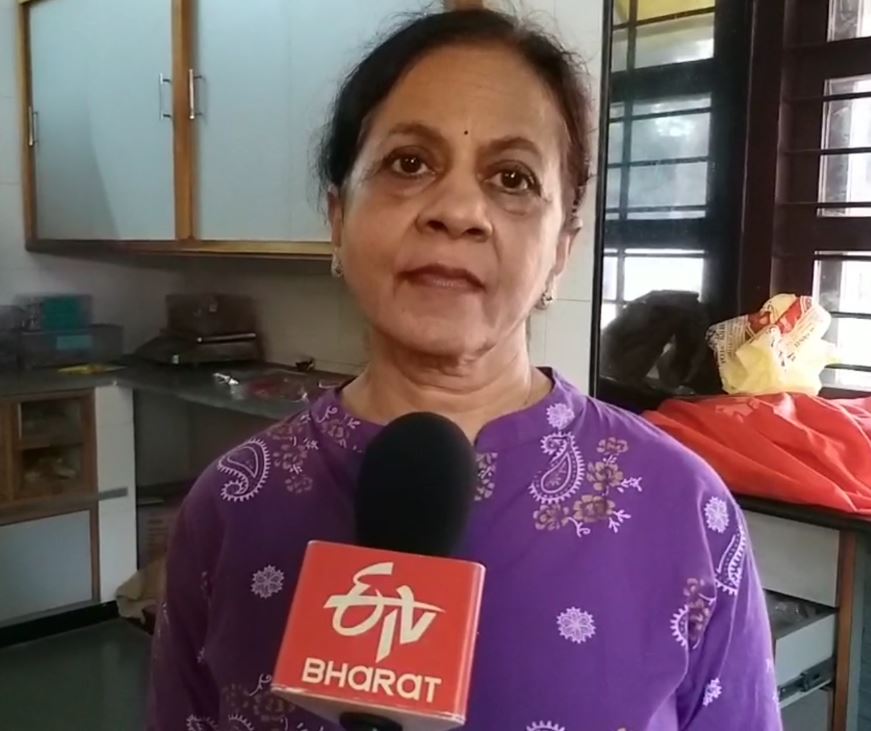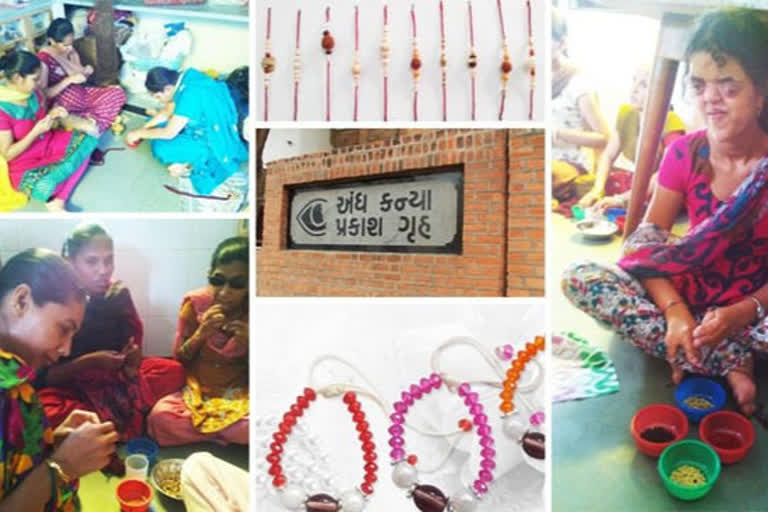Ahmedabad: The Covid-19 pandemic has made life miserable for many in a variety of ways. But, hardly anyone guessed it had the capacity of casting a pall of gloom on a bunch of visually impaired girls in Gujarat.
Conquering the challenges
The inmates of Andh Kanya Prakash Gruh (which loosely translates to Blind Girls' Light House in English) of Ahmedabad used to be a busy lot during the month June every year, for the past 20 years.
In almost magical unison, the tender fingers of these girls danced to a single tune as they worked relentlessly and churning out about thousands of rakhis every day.
With beads, decorative stones, threads, sequins, motifs and other material scattered all around them, the girls occasionally giggle as one would crack a silent joke.
But, every time a rakhi is completed, the sparkle in their eyes would literally outshine the literal darkness of their sight.
“Apart from regular rakhis if customer demand for special rakhis, these girls are so fast that will same expertise they will 100 to 500 rakhis within a day”, says the coordinator Smita Shah with a beaming face.

Covid 19 creating new challenges
The Covid-19, the lockdown, the social distancing norms, travel restrictions and a blanket ban on all congregations, have changed everything.
As the pandemic spread its tentacles, the girls left for their home. Though they started in early January to meet the demands, yet they had to leave work midway in March. The disruption has thrown their targets out in the wind and they are way behind even the mark of one lakh rakhis this year.
Every year about 12 to 15 girls of Andh Kanya Prakash Gruh roll out 12 to 15 lakhs rakhis. These handmade rakhis are usually priced between Rs 10 to Rs 20 a piece, and in case of special rakhi, the price depends on the materials used.
Read more:Oct 1: New deadline to display ‘best before’ date
These threads of craftsmanship have earned them immense popularity and apart from catering to local markets and nearby states, they also get demands from customers for special rakhis from abroad.
Sale of rakhis, which usually starts from June onwards, has seen a drastic downturn this year.
“Every year we sell rakhis in lakhs, but this year we do not know whether we will be able to clear the stock of rakhis made before the pandemic,” sighs Shah.
Staring at uncertainty
The global pandemic has dented its overseas revenues also.
“Sales to other countries have become a tough proposition this year due to the rising shipment cost”, Shah says adding, the whole situation due to Coronavirus would put the institution on a sticky ground financially, as much has already been invested in buying raw material for rakhis.
With limited manpower, they are not in a position to cater to the demands of special rakhi by the customers.
“We have got few demands for special rakhis this year as well but had to say no as we do not have enough manpower and asked them to choose from our current stock”, says Shah.
The hallways of Andh Kanya Prakash Gruh are silent. The usual giggles and chatter of the girls huddling together, deftly tying the knots and creating exquisite rakhis, is completely missing.
This Raksha Bandhan is as different for the inmates as for the rakhi enthusiasts. The new normal has not brought back the twinkle in the girls' eyes.
(ETV Bharat Report)



